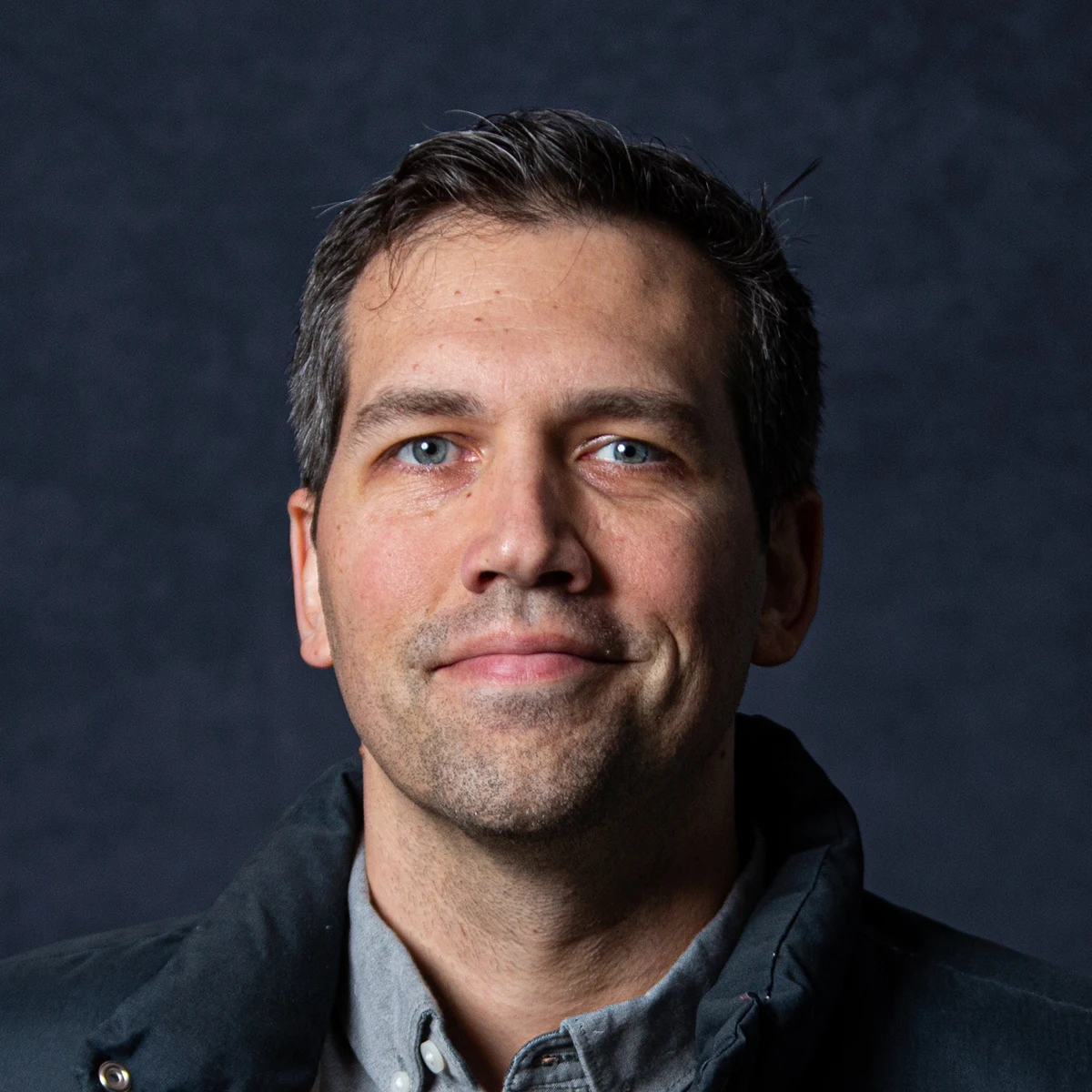Lessons from a barbershop

I have been going to the same barber for around seven years now. It's a multi-generational barbershop with views of Lake Washington, where the aroma of coffee and Italian food floats as you walk in. In the summer, you occasionally have to park a few blocks away because they have street vendors that set up shop along the waterfront, and the place is packed.
I enjoy booking my haircut online and getting in and out in less than 30 minutes. No waiting around. It's the same haircut every time, and I don't even have to tell him what we're doing. We start chatting, and he starts cutting.
A couple of years back, my barber, let's call him James, mentioned he was taking some programming classes. My initial reactions were:
- Oh no! Am I going to lose my barber? I love coming here (selfish, I know).
- It would be sad to lose this place and all its history if he switched careers.
- I can't blame the guy. He probably gives a few haircuts daily to tech folks who regale him with intriguing stories.
Well, good for him. He was excited about it. He's a Windows guy and is learning some Java and C#. We good-heartedly lambasted each other's platform of choice (I'm all Mac) as we discussed various programming topics. He was messing around in Unity and dabbling with some web stuff. We even talked about some Flash. Look it up, young kids.
I was struck by one thing in particular: his confidence.
The double-edged sword of experience
Programming is an enigmatic field that boasts a seemingly infinite array of complexities and surprises. Aspiring developers, fresh out of college or self-taught from the resources provided by many great people in our community, often enter the field with a spirit of boundless optimism. They genuinely believe they can build anything, and who can blame them? They've just discovered a magical toolset that can transform mere thoughts into working software!
On the other end of the spectrum, we have seasoned programmers—veterans of the industry who have spent years battling bugs, facing architectural challenges, and understanding the complexities of the business domain. These battle-hardened developers tend to approach new projects with a healthy dose of skepticism, aware of the pitfalls and challenges that lie ahead.
Talking with James woke up a lot of old memories from the days when I had "the next big idea" several times a week. There were instances when I felt like I was listening to a replay of myself when he talked. During one haircut, he mentioned having a great idea (that he couldn't share yet) and was so excited that he'd found a shared web host that didn't charge for bandwidth or storage. Ha! Back in the day, I remember getting so stoked that I could pay like $9.99/mo. and host as many websites as I wanted and never have to worry about egress and storage fees. I used to think, "Those hosts don't know who they are dealing with! My ideas are going to be huge 🤣." Undoubtedly, they were going to get the raw end of the deal.
Listening to someone early in their journey made me realize how much I miss those days. All ideas were big, and the road ahead was as smooth as freshly laid asphalt. Now, I agonize over the smallest of features because, having built them before, I know how long they're going to take. Big ideas, if they even come anymore, seem like pipe dreams. They get obliterated in the planning phase. Determining timelines, funding, and hiring talent seem like insurmountable roadblocks. I wish I could open up a text editor and just build something. I envied James; He didn't care about any of these things. He was just going to start building and figure it out.
Good taste
Visit after visit, I'd leave the barbershop wondering how to get that magic back. How could I reclaim that enthusiasm without getting discouraged by the inevitable roadblocks? It turns out the answer may be a matter of taste.
Ira Glass has a great quote in which he talks about why people get into creative work. I'll include the full quote at the end of this post, but it starts:
“Nobody tells this to people who are beginners, I wish someone told me. All of us who do creative work, we get into it because we have good taste. But there is this gap. For the first couple years you make stuff, it’s just not that good. It’s trying to be good, it has potential, but it’s not. But your taste, the thing that got you into the game, is still killer. And your taste is why your work disappoints you."
I understand if you are confused about why I find this idea applicable. I've been writing code for over 20 years, and I'm sitting here telling you I'm an established and experienced digital creative. Unless I'm entirely talentless (debatable), I've indeed closed the gap that Ira talks about, right? Well, yes, but also no, and shit... this is the damn lesson, I think. Hear me out.
We don't get to develop a product in a vacuum. Apps, websites, and physical products all have business pressures applied to them. Over time, I've let business requirements tag along for the ride on my creative ideas and weigh them down. I've inappropriately conflated the two, and it's made good ideas seem too far-fetched, but for the wrong reasons. I was determining viability based on the part of the process I had the least experience in. That seems dumb.
Like building something on a computer, I think I have a good taste for how a successful business operates. But for me, there's still a gap. Ira continues:
"A lot of people never get past this phase, they quit. Most people I know who do interesting, creative work went through years of this. We know our work doesn’t have this special thing that we want it to have. We all go through this."
How many times did I quit? A lot. I failed to start even more. I looked at successful products and broke my brain trying to think of everything that must have gone into getting them to market. It wasn't the technical side of the products that scared me. I'm confident that, given enough time, I can bang out excellent work. It was all the other stuff that scared me.
Since Ira seems to be onto something, let's let him finish:
And if you are just starting out or you are still in this phase, you gotta know its normal and the most important thing you can do is do a lot of work. Put yourself on a deadline so that every week you will finish one story. It is only by going through a volume of work that you will close that gap, and your work will be as good as your ambitions. And I took longer to figure out how to do this than anyone I’ve ever met. It’s gonna take awhile. It’s normal to take awhile. You’ve just gotta fight your way through.”
My next haircut
As I'm writing this on my computer, I realize I need a fresh haircut. After I post this, I will jump online and get it booked. When I go in this time, I'm going to join James in his confident disposition. We can build great things. We just have to put in the work. He's me, 20 years ago. He's doing what he can to close that programming gap so his abilities match his excellent taste.
I'm also me from 20 years ago; I'm just staring down a new set of obstacles that I'll have to spend some time figuring out. I'll be putting in the work, too. I'm happy to have thought this through and will do a better job of separating my creative and business concerns moving forward. I prefer having a functional product in hand while I navigate the business aspect rather than discarding every viable creative idea due to the perceived difficulty of the business side. The first scenario gives you a fighting chance; the second never does.
Time to close the gap... again.
Here's the full quote.
“Nobody tells this to people who are beginners, I wish someone told me. All of us who do creative work, we get into it because we have good taste. But there is this gap. For the first couple years you make stuff, it’s just not that good. It’s trying to be good, it has potential, but it’s not. But your taste, the thing that got you into the game, is still killer. And your taste is why your work disappoints you. A lot of people never get past this phase, they quit. Most people I know who do interesting, creative work went through years of this. We know our work doesn’t have this special thing that we want it to have. We all go through this. And if you are just starting out or you are still in this phase, you gotta know its normal and the most important thing you can do is do a lot of work. Put yourself on a deadline so that every week you will finish one story. It is only by going through a volume of work that you will close that gap, and your work will be as good as your ambitions. And I took longer to figure out how to do this than anyone I’ve ever met. It’s gonna take awhile. It’s normal to take awhile. You’ve just gotta fight your way through.”
― Ira Glass
